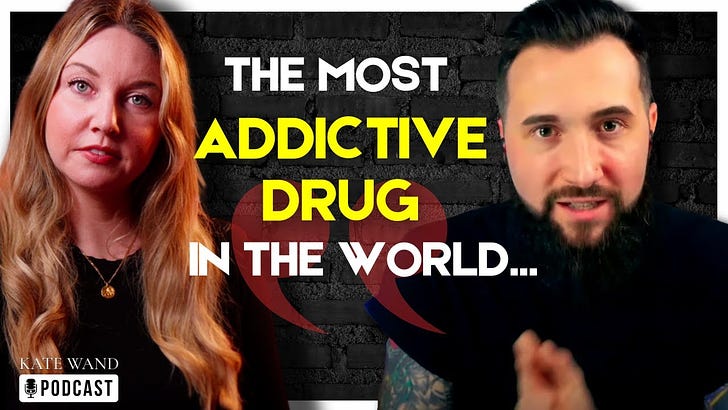Finding Meaning In Suffering
"Discomfort and pain are the catalyst for growth." Aaron Prager
A short excerpt from my latest podcast episode with Aaron Prager, on the pursuit of meaning as an antidote to spiritual malaise:
Kate:
And then the other thing, you know, the third thing was finding meaning in suffering. So not being like you are, you can be a victim, but it doesn't mean you have to have a victim mindset that you have to fall into victimhood.
So yes, there's like this kind of distinction there and to find meaning in your suffering. And of course he's detailing this as he's, he's working on this thing called logo therapy that he's developing something, a new psychological school of thought that's different than Freud and Adler. It's not about like your fantasies about your parents. It's not about power relationships, but it's something called logo therapy, which is the therapy of pursuing meaning.
And so, like, do you see that as well as kind of like when you were kind of at your rock bottom, when you were at a low point, like that kind of pursuit of meaning? Like rather than just— and he says in his book, Victor Frankl, I think that in America, we shouldn't say the pursuit of happiness, it should be the pursuit of meaning, and happiness will come.
Aaron:
I love it. I love it. I'm there we go from your mouth to God's ears. Yes. No happiness and purpose happiness purpose and meaning. All three are smashed together. Like I said at the beginning you have all these distractions now in society. They're trying to pull you away from the things that do ultimately like the easiest way for somebody to achieve happiness might be my father wrote a whole book on it called Happiness is a Serious Problem, is the purpose of your responsibilities in your life.
So for parents raising a kid, yes, tremendously tough, tremendously hard to do in certain arenas. It's gonna make you wanna slam your head against a wall. But at the end of the day, if you're able to, who doesn't take pride in what their kid does? It's your purpose. I feel like my purpose is to be a father at some point, which is why my wife and I are, sooner than later, gonna be pursuing that. And that is gonna be, it's gonna give me, I'm gonna be washed over with a sense of purpose.
You know, not to take away, people can have multiple senses of purpose though. I mean, meaning, purpose, happiness. People who like look at some of the most unhappy people, they claim on TikTok that they're happy. I challenge that hard. But the people who are like, oh yeah, I wake up. I woke up at noon today. I baked some sourdough. Then I went to the park. Then I slept for three hours. Like, really?
I find it very hard to believe that those people are truly happy. They might be happy in a phase, I'm not denying that, but at the end of the day, does it lead to long-term happiness and the ability to grow?
You mentioned, you know, suffering, pain. Rabbi Abraham Tversky, he's a substance abuse counselor, as well as an Orthodox rabbi. He wrote the lobster story. I'm not sure if you're familiar with the lobster story, but a condensed version of it is a lobster is a crustacean, right?
So it bulges up against the side of its shell, which is pain. It then has to go underneath a rock, molt its shell, which creates even more pain for the lobster to be able to grow. So discomfort and pain are the catalyst for growth ultimately.
And a society that tells you that you are the alpha and the omega of the universe and that you could be ultimately happy and have purpose through activism, climatism, wokeism, whatever have you, you're missing the point. You're never gonna be able to grow if you're permanently content.


